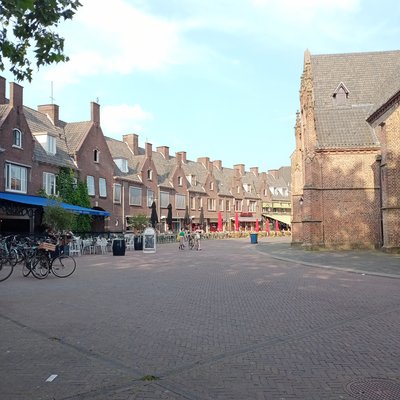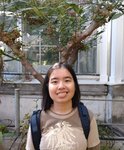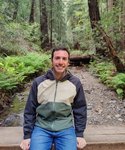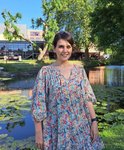Connecting Minds, Sharing Insights: PIG-PARADIGM ECRs Join a Summer Course at WUR
One of the primary impact goals of PIG-PARADIGM is to train and educate the next generation of industry and academic researchers. To achieve this, the project has dedicated resources to encourage and support our Early Career Researchers (ECRs) by providing them with opportunities to participate in exchange visits and attend courses outside their own institutions.
Recently, three ECRs from Aarhus University embarked on a one-week summer course at Wageningen University & Research (WUR). Let's dive into their experience and learnings from their time there.

Antonia
One of the advantages of doing a PhD is getting the opportunity to go abroad and gain/share knowledge with researchers or fellow students in other countries.
Last month, I took part in a summer course on Glycosciences in Wageningen, the Netherlands. In the course, I learned about many different aspects of carbohydrate. For instance, I learned about the basic chemical structures of carbohydrate, the role of carbohydrate in many different organisms, how it can be used to modulate health and/or immunity, and some research techniques (e.g. in vitro models used in another university). It turns out that carbohydrates/glycans have truly important roles in organisms. It is the key structure to cell interactions. When it comes to pathogens, glycan structures influence the course of infection in the host. Furthermore, carbohydrate constitutes the majority of plants’ structure, and if processed and fed to humans or animals can have various beneficial impacts on their health.
Besides the lectures, there were other interesting things, such as the participants, poster sessions and the surroundings of the course venue. There were altogether around 70 participants in the course. Both the teachers and the participants came from many different countries. Therefore, the poster sessions also gave me a chance to glimpse some of the research projects done in other institutions and countries. Moreover, the area around the course venue is very green and close to the city center of Wageningen. I enjoyed using my spare time to explore them. Overall, it was a worthwhile experience.
Ruben
This summer I had the pleasure to take the 17th Summer Glycoscience Course in Wageningen University & Research (WUR). This event consisted in lecture-like talks given by a multi-disciplinary panel of distinguished experts on the field of Glycans (sugars).
The talks focused on the understanding of simple and complex carbohydrates and methodologies to study them. They aim was to gain insight in the relevance of carbohydrates in different areas such as food industry, biotechnology and medical pathology among others.
The course was highly relevant for my PIG-PARADIG project given that it helped me to understand the differential composition of sugars on the surface of microorganisms in comparison to vertebrates and the mechanisms involved in their synthesis. In addition, I learnt the metabolism of complex carbohydrates like dietary fiber by different microorganisms and how the metabolites generated from this can lead towards a beneficial or detrimental gut environment.
Beside the intellectual gain, the course also focused on social networking where we had the chance to interact with more than 70 participants from different backgrounds and expertise during the break coffee time, lunch, and dinner. The diversity on the audience and speakers ranged from academic researchers to industrial product developers and biotechnologist enriched the talks even further.
Overall, the course was a great opportunity for building new ideas for my own projects and those of my colleagues as well as a platform to make connection for different future collaborators.
Niloofar
Participating in Glycoscience summer school in Wageningen was one of the greatest experiences in my academic life. Regarding the fact I have just started, and I am getting prepared for a 3-year journey, this course was so inspiring, and eventually, I came up with new ideas in the carbohydrate world.
The course was well-designed to feed all the participants with different backgrounds from chemistry to medical and veterinary science. Moreover, the international environment on this course provided a very diverse atmosphere and point of view in order to get a holistic view of what different researchers are focusing on and the new facilities, technologies, and equipment they are using in different universities.
I believe the lecturers were the most experienced ones in this area, and their domination on their research area was inspiring. The teaching environment was friendly, and I felt very welcome to ask any question during the lectures or discuss a subject afterward.
For me personally, the poster session was a turning point, where I could communicate, share my ideas and thoughts, and get many advice and offers for collaboration and improving my research. This course provided a platform for me to expand my network with well-known researchers, and it is amazing how many familiar names I find while reading publications, and I can send an email and say we met in the Glycoscience course and then the communication flows for any discussion or questioning.
Altogether, I found this course fruitful and beneficial for any researcher or student who is working in the carbohydrate world.





